Local Democracy Project
[ EN / FR ] Over 30,000 candidates ran for approximately 10,000 offices in Canada’s 3,533 municipalities in the most recent election cycle. The rules that govern how candidates campaign, including how their campaigns are financed, vary considerably between and within provinces, yet we know very little about the effects of these rules and what candidates think about them, and how local candidates experience running for office.
Over 30,000 candidates ran for approximately 10,000 offices in Canada’s 3,533 municipalities in the most recent election cycle. The rules that govern how candidates campaign, including how their campaigns are financed, vary considerably between and within provinces, yet we know very little about the effects of these rules and what candidates think about them, and how local candidates experience running for office.
The goal of the Local Democracy Project / Projet sur la démocratie locale is to comprehensively describe local election rules in ten Canadian provinces, explain how they have changed over the past decade, and determine their effects on election outcomes. We will also use anonymous surveys and interviews to learn about how candidates campaign in municipalities large and small.
There is substantial research on local election campaigning, and on election rules and campaign finance regulation, at the federal and provincial levels in Canada and other countries, but the subject remains virtually unstudied at the municipal level, where the vast majority of Canadian elections take place. Once elected, successful candidates make important decisions regarding Canadian social and economic life. Their control over the use of land, services, and infrastructure makes them attractive targets for private interests seeking to influence government decisions, including through campaign contributions. How election campaigns are financed and organized may have profound implications for the practice and quality of democracy – whose preferences are heard, and who gets what, when, where, and how. Local campaigns are also where many federal and provincial political careers begin and where politicians’ fundraising networks and support coalitions are first formed. For all these reasons, municipal elections are a rich area in which to investigate the causes and consequences of election rules, and how candidates experience campaigning for election.
The project is funded by a Social Sciences and Humanities Research Council Insight Grant and housed at Western University’s Centre for Urban Policy and Local Governance.
For more information about the project, please email mldproject@uwo.ca.
People
Investigators
 Dr. Zack Taylor is Associate Professor in the Department of Political Science at Western University and the project’s principal investigator. He was the founding Director of Western’s Centre for Urban Policy and Local Governance and is a Fellow at the Institute on Municipal Finance and Governance (IMFG) at the University of Toronto. His research focuses on urban political economy and local governance.
Dr. Zack Taylor is Associate Professor in the Department of Political Science at Western University and the project’s principal investigator. He was the founding Director of Western’s Centre for Urban Policy and Local Governance and is a Fellow at the Institute on Municipal Finance and Governance (IMFG) at the University of Toronto. His research focuses on urban political economy and local governance.
 Dr. Sandra Breux is Professor at the Centre Urbanisation Culture Société at the Institut national de la recherche scientifique (INRS), Montréal, where she co-leads the Smart Pedestrians Cities Laboratory and is Scientific Director of the Villes Régions Monde (VRM) Network. She is also a leader of the Canadian Municipal Barometer, an annual survey of mayors and councillors.
Dr. Sandra Breux is Professor at the Centre Urbanisation Culture Société at the Institut national de la recherche scientifique (INRS), Montréal, where she co-leads the Smart Pedestrians Cities Laboratory and is Scientific Director of the Villes Régions Monde (VRM) Network. She is also a leader of the Canadian Municipal Barometer, an annual survey of mayors and councillors.
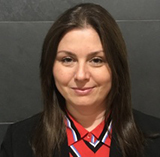 Dr. Kristin Good is Associate Professor in the Department of Political Science at Dalhousie University with a cross-appointment to the Law, Justice, and Society program. Her current research focuses on the intersection between diversity and local governance and also the constitutional status of Canadian municipalities.
Dr. Kristin Good is Associate Professor in the Department of Political Science at Dalhousie University with a cross-appointment to the Law, Justice, and Society program. Her current research focuses on the intersection between diversity and local governance and also the constitutional status of Canadian municipalities.
 Dr. Martin Horak is Associate Professor in the Department of Political Science at Western University, where he serves as Associate Director of the Centre for Urban Policy and Local Governance. He specializes in Canadian and comparative urban politics and how the spaces of urban life and everyday relations within them shape our attitudes towards those who are socially different from us, and in the possibility and practice of self-governing cooperation in cities.
Dr. Martin Horak is Associate Professor in the Department of Political Science at Western University, where he serves as Associate Director of the Centre for Urban Policy and Local Governance. He specializes in Canadian and comparative urban politics and how the spaces of urban life and everyday relations within them shape our attitudes towards those who are socially different from us, and in the possibility and practice of self-governing cooperation in cities.
Research Associates
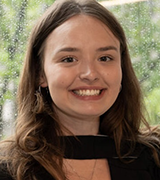 Cora Fletcher is an MA student in the Political Science department at Dalhousie University. In 2024 she graduated from Dalhousie with a BA Honours in Political Science and was the Eric Dennis Gold Medal Winner in Political Science. She has held several different research assistant positions in both the public and private sectors. Her current research focus is on gendered understandings of peace and security policy.
Cora Fletcher is an MA student in the Political Science department at Dalhousie University. In 2024 she graduated from Dalhousie with a BA Honours in Political Science and was the Eric Dennis Gold Medal Winner in Political Science. She has held several different research assistant positions in both the public and private sectors. Her current research focus is on gendered understandings of peace and security policy.
 Ivana Gotovac is a student at Western University, pursuing an Honours Specialization in Political Science. Over the summer of 2023, she led the collection of candidates financial disclosure data in Ontario.
Ivana Gotovac is a student at Western University, pursuing an Honours Specialization in Political Science. Over the summer of 2023, she led the collection of candidates financial disclosure data in Ontario.
 Scott Ripley is an MA student in the Department of Political Science at Dalhousie University. He is interested in the impacts of political discourse and institutions on environmental and economic policies.
Scott Ripley is an MA student in the Department of Political Science at Dalhousie University. He is interested in the impacts of political discourse and institutions on environmental and economic policies.
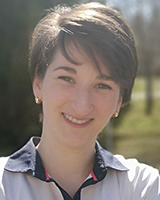 Salomé Vallette is a doctoral candidate in urban studies at the Centre Urbanisation Culture Société at the Institut national de la recherche scientifique (INRS), Montréal. She is also the coordinator of the Villes Régions Monde (VRM) research network and has been working as a research assistant for the Canadian Municipal Barometer since 2019.
Salomé Vallette is a doctoral candidate in urban studies at the Centre Urbanisation Culture Société at the Institut national de la recherche scientifique (INRS), Montréal. She is also the coordinator of the Villes Régions Monde (VRM) research network and has been working as a research assistant for the Canadian Municipal Barometer since 2019.
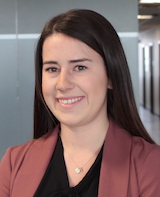
Former Research Associates
 Brittany Bouteiller graduated from Western University’s Honours Program in Politics, Philosophy, and Economics in 2022. While holding a Undergraduate Summer Research Internship, she prepared a pilot study for this project entitled “Election Campaign Finance Rules in Canadian Municipalities: An Overview,” Centre for Urban Policy and Local Governance Research Bulletin #1, 2021.
Brittany Bouteiller graduated from Western University’s Honours Program in Politics, Philosophy, and Economics in 2022. While holding a Undergraduate Summer Research Internship, she prepared a pilot study for this project entitled “Election Campaign Finance Rules in Canadian Municipalities: An Overview,” Centre for Urban Policy and Local Governance Research Bulletin #1, 2021.
 Reagan Cockburn graduated from Western in 2023. She prepared a research paper on rulebreaking by candidates as a summer 2023 Undergraduate Summer Research Intern.
Reagan Cockburn graduated from Western in 2023. She prepared a research paper on rulebreaking by candidates as a summer 2023 Undergraduate Summer Research Intern.
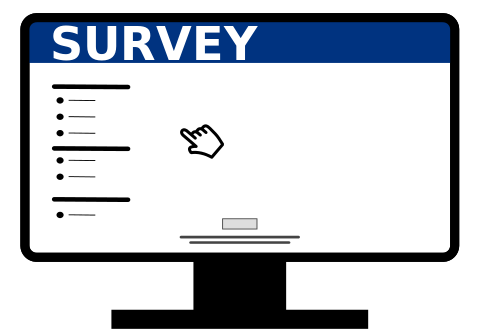
The Candidate Survey
Between 2022 and 2026, the Project will field the largest survey of election candidates in Canadian history. The on-line survey will be sent to all candidates for municipal office in municipalities across Canada. We fielded surveys in British Columbia, Manitoba, Ontario, New Brunswick, and Prince Edward Island in 2022 and in Nova Scotia and Saskatchewan in 2024. We are currently surveying candidates in Newfoundland and Labrador and Alberta. All responses are kept anonymous. To date, more than 3,000 candidates have responded to the survey.
If you are a municipal candidate or local election official and have questions about the survey, please contact us at mldproject@uwo.ca.


